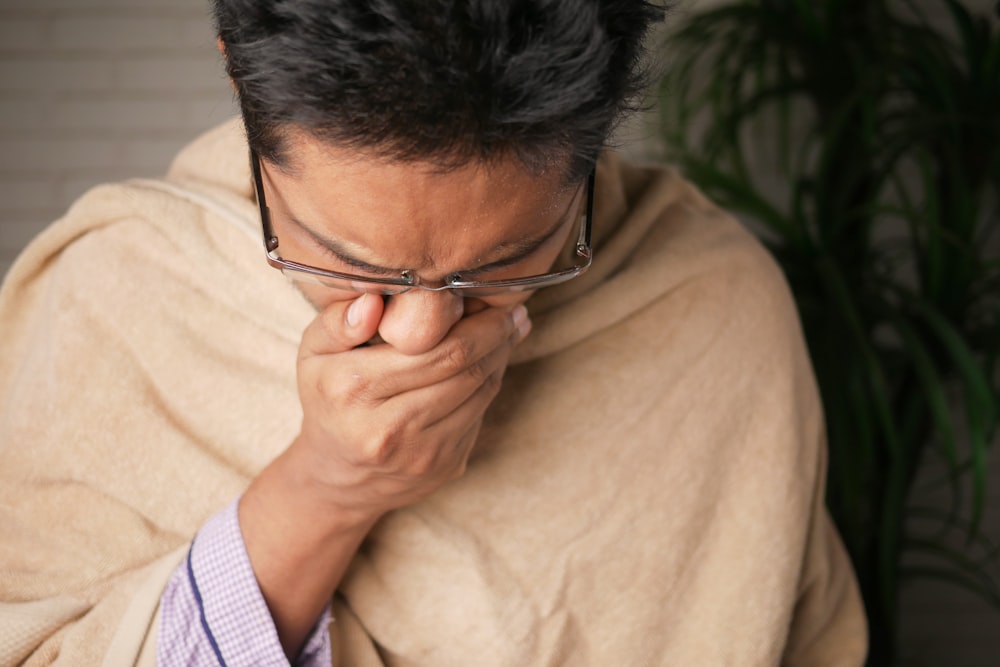Cold and flu season is here. For many people, this is the time of year to start taking extra vitamins, get their flu shot, and take other precautionary measures to avoid getting sick.
For individuals who use CPAP machines to control obstructive sleep apnea, however, caring for their device must also become a key part of staying healthy. If you don’t care for your CPAP machine like you should, it could actually contribute to upper respiratory infections.
Here’s what you need to know about caring for your CPAP device so that it doesn’t contribute to illness.
How Can You Get Sick From Using Your CPAP Machine?
The good news is that generally speaking, your risk of getting sick from using your CPAP machine is pretty low. CPAP infections generally occur when you don’t clean your device components or change the water that is used for the humidifier.
The moist air that travels through your tubing and mask can leave water residue behind when you are done using it. This, combined with stagnant CPAP water that isn’t changed, can create the perfect environment for germs and bacteria to thrive. As a result, when you use your CPAP machine, the humidified air would also be carrying these bacteria, increasing your risk of an infection.
This risk increases when you are using old, corroded equipment that needs to be replaced. Tiny cracks and pitting in the humidifier water chamber, tubing, or mask can trap moisture and bacteria, making these components harder to clean properly.
CPAP-related upper respiratory infections aren’t typically going to be much more severe than a seasonal cold, with symptoms like sore throat, cough, and runny nose. However, bacterial buildup in the humidifier chamber can lead to more severe symptoms, such as high fever, chills, shortness of breath, or muscle aches.
If you experience chest pain, a lingering high fever or a cough that doesn’t improve, you should contact your doctor. Regardless of whether your CPAP machine is a contributing factor, these symptoms generally require professional medical treatment.
Preventing CPAP-Related Illnesses
The good news is that preventing CPAP-related infections is fairly straightforward.
Start by following all cleaning and maintenance instructions. This includes cleaning the mask, tubing, and water chamber daily with warm water and mild dish soap. After washing, rinse these parts and allow them to fully air dry. You should also sanitize them in a water/vinegar mixture once per week to eliminate any bacteria. Some detachable humidifier water chambers are also dishwasher-safe for easier cleaning.
Replace the water in the humidifier water chamber each day to prevent bacterial buildup. Distilled water is safer for CPAP use than tap water — studies have actually found that contaminated CPAP water can contribute to Legionnaire’s disease.
Finally, follow manufacturer guidelines for replacing aging CPAP equipment. CPAP masks and tubing may need to be replaced every three to six months. Aging equipment experiences corrosion that makes it more likely to trap bacteria. New parts are easier to keep clean, and are less likely to experience air leaks.
Can You Still Use Your CPAP Machine When You’re Sick?

Even when you’re taking good care of your CPAP machine, exposure to germs and bacteria is commonplace during cold and flu season. You can lower your risk for illness by washing your hands regularly, staying up to date on vaccinations, avoiding people who are sick, and (for high-risk individuals) wearing a mask.
Of course, none of these are guarantees that you’ll stay healthy all winter long. And when you get sick, you might find yourself wondering if it’s still okay to use your CPAP machine.
The short answer is that generally speaking, you should continue to use your CPAP machine, even when you are sick. It may be less comfortable than normal, but your body needs sleep to recover from illness. Using your CPAP device ensures your rest won’t be interrupted by sleep apnea, helping you heal faster.
You may want to perform a deep-clean of your equipment more regularly while you are sick to prevent bacterial buildup. Consistent cleaning will ensure that any bacteria from your illness doesn’t get trapped where it could make you sick again.
If you have concerns about using your CPAP machine while sick, contact your healthcare provider. They can offer personalized recommendations based on the severity of your illness and the severity of your sleep apnea. They may be able to provide additional guidance to reduce potential discomfort from using your CPAP machine while sick.
Enjoy Compliant and Healthy CPAP Therapy
While keeping your CPAP machine clean doesn’t guarantee that you won’t get sick this winter, it can greatly lower your risk of illness and ensure that sleep apnea treatment doesn’t cause any infections.
In addition to cleaning your CPAP equipment as recommended by the manufacturer, you must also replace worn components like the mask and tubing — and even the CPAP machine itself. Equipment replacement costs can add up quickly, especially when you don’t have insurance. This is where No Insurance Medical Supplies can help.
At No Insurance Medical Supplies, you’ll find a wide range of CPAP machines, masks, tubing, and other components, many at significantly discounted prices off of MSRP. Free shipping is also available on orders of $49 and up when you sign up for email and text. Financing is also available to break your purchase into more affordable payments.
With up to date (and properly cared for) equipment from No Insurance Medical Supplies, your CPAP machine won’t hurt your health.

